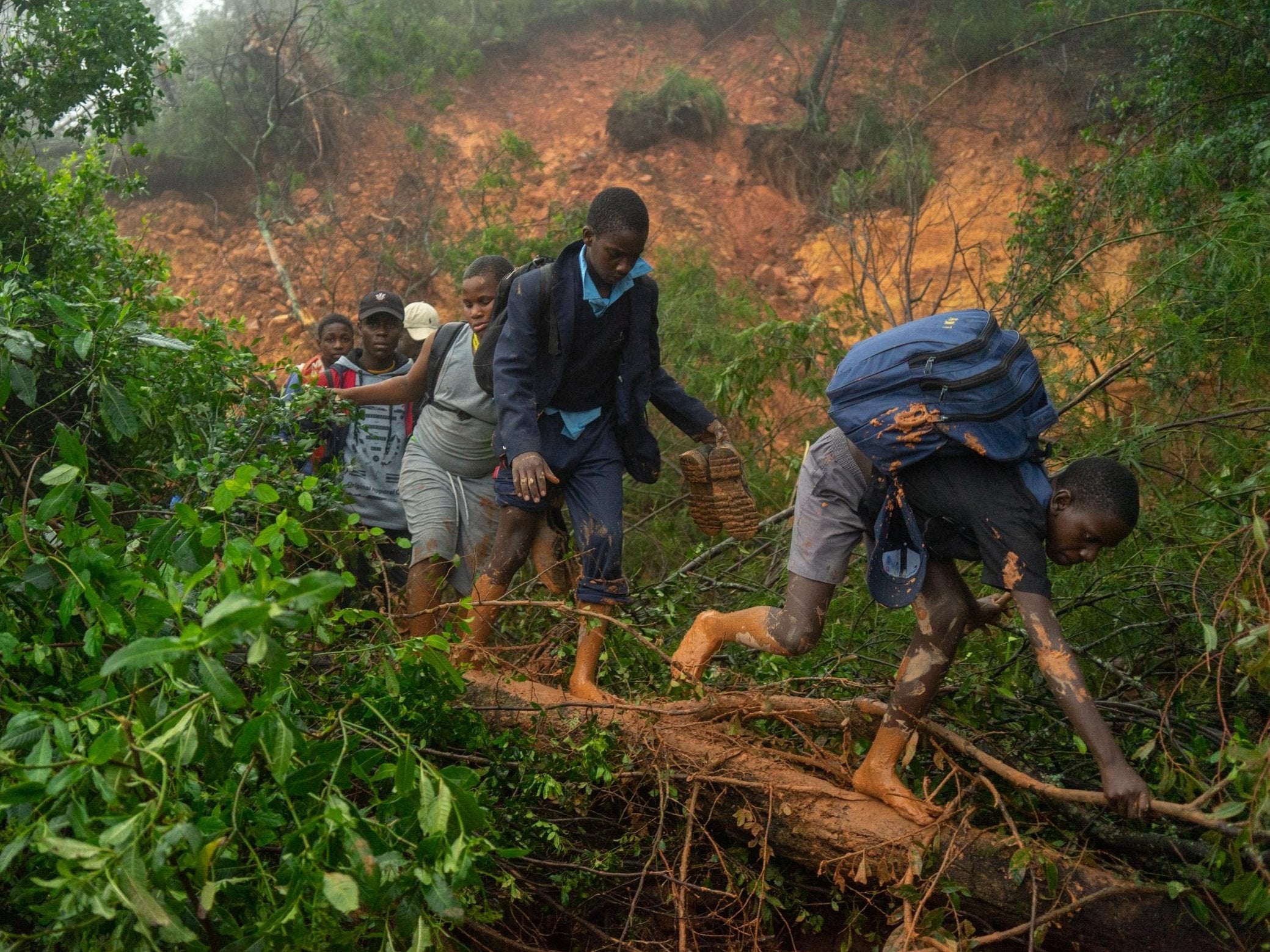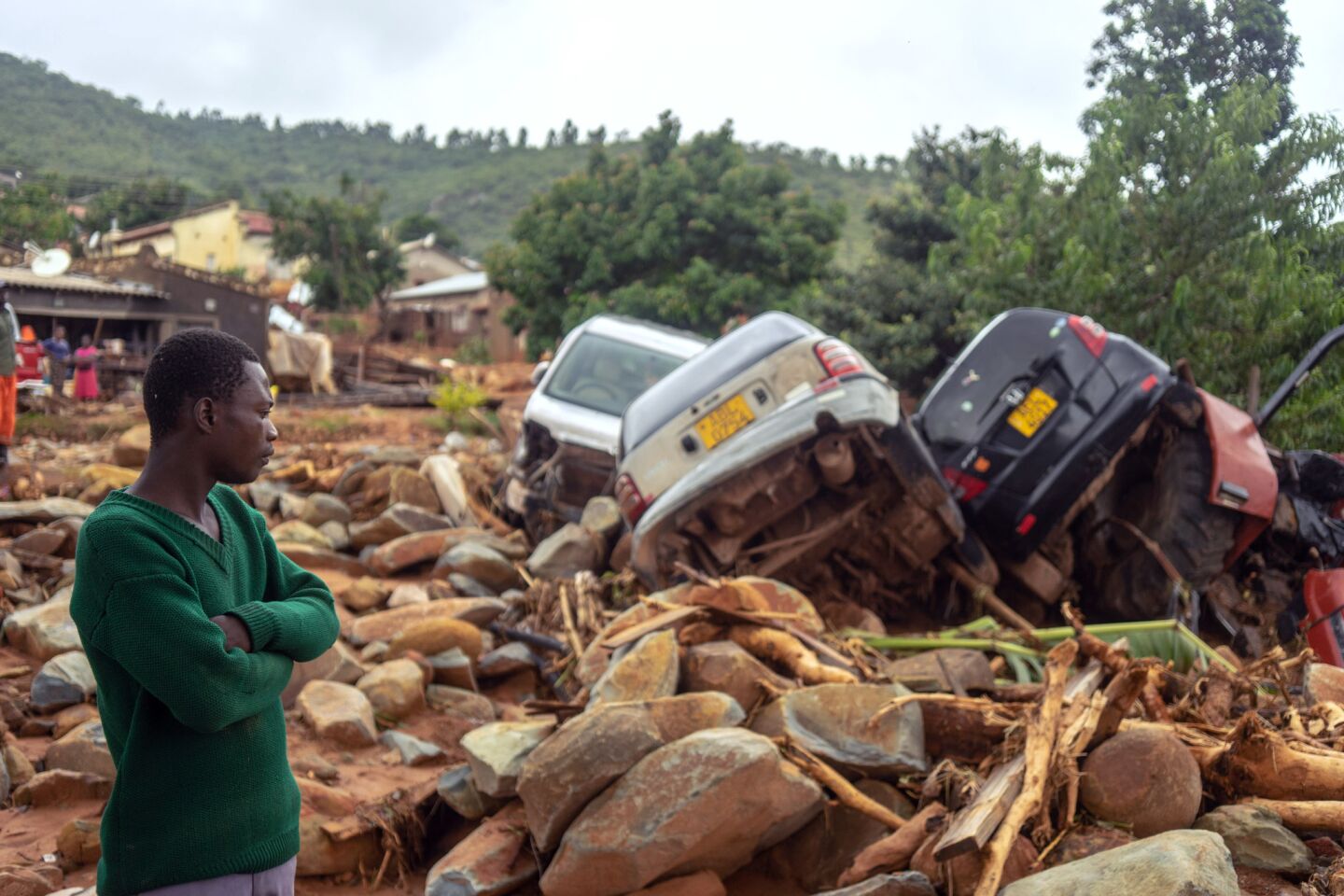Based on prior season averages, five cyclones are projected to hit Zimbabwe during the current rainy season, albeit there are no forecasts as to when, where, or how strong they will be.
However, the government has learned critical lessons from previous cyclones and put in place systems to alert and safeguard people even if a high-energy cyclone with heavy rainfall strikes.
Throughout the National Tobacco Workshop, Benjamin Kwenda, an agro meteorologist at the Meteorological Services Department, stated that cyclone activity will rise starting next month, with the risks being high for the following four months during the cyclone season.
“This season we are anticipating an increase in cyclone activity in January, February, March up to April but in terms of projections we are expecting five cyclones,” he said.
It was only when a cyclone finally formed in the Indian Ocean that it would be possible for meteorologists to start working out their likely path and updating that information frequently as the cyclone started moving towards Madagascar and Africa.
But even so the warnings were fairly short term as the storms were unpredictable.
“The tropical cyclone, its just like a whirlwind so when the whirlwind is generated you are not able to pick where exactly it will go but as it grows bigger you will then able to pick the direction and then you can actually say this is where it is going,” said Mr Kwenda.
He said the Met Department was expecting rains into next week. There would be a decline of rainfall up to Wednesday next week, with some places experiencing sunny conditions.
The first half of the season, up to the end of the year, the expectation was that most of the country would be in the category of normal to below normal, but the southern parts would see normal to above normal totals.
“For the period December, January and February we are expecting the bulk of the country to receive normal to above normal rainfall in this season and this is the same that we are expecting in January, February and March. We are generally looking for a better season in terms of seasonal totals,” he said.
The Met Department saw a possibility of having more frequent extremes, such as hailstorms, and so there was a need for crop insurance because that was the only way farmers could cope with losses to their crops.
Hail is ideally suited to insurance, since the odds of destruction of a crop on any particular farm is low, so premiums can be low, but if a hailstorm does move over a farm, the damage is extreme, and the insurance payout is vital.
The Government has been budgeting to ensure that adequate responses can be made for storm and flood damage.
Recently, the Department of Civil Protection chief director Mr Nathan Nkomo said adequate funds to deal with disasters such as flash floods associated with the rainy season have been set aside.
“The rainfall season comes with a lot of challenges, but more importantly, it also comes with a lot of hope because most of our agriculture is rain-fed. So we welcome the rainfall season in Zimbabwe. However, in terms of preparedness, we have done our level best. Remember we are preparing to handle natural hazards in the form of flash floods and ultimately, when we get into the cyclone season, mostly from January to March, we will escalate our level of preparedness,” he said.

Zimbabwe Farmers Union economist Ms Nyasha Taderera said staggering of crops is critical when the floods occur because not all crops will be affected. Diversification was crucial tp spread risk, hence a need to plant different types of crops.
“Cyclones are usually accompanied by dry spells so not all crops will be destroyed. The effects of floods are different to crops. Some can be totally destroyed but some may survive,” she said.
Zimbabwe Commercial Farmers Union president Dr Shadreck Makombe urged farmers to stay away from river banks adding that farmers should take all warnings seriously to keep themselves safe.
“Safety is of paramount importance. Do not ignore these key messages. Growing of crops on vleis may also trigger leaching so l advise farmers to note this crucial information so that they are protected from dangerous effects of weather,” he said.
Tropical Cyclone Idai, the worst in more than 50 years to reach Zimbabwe, brought heavy rainfall and strong winds to Malawi, Mozambique and Zimbabwe between March 5 and 19 in 2019, causing severe flooding which led to loss of lives, destruction of infrastructure, disruption of livelihoods and destruction of crops.
In other news,
Look at Emmerson Mnangagwa’s Million-Dollar Homes
Mnangagwa doesn’t even require the statehouse…
President Emmerson Mnangagwa has been in charge since 2017, but he has been in the spotlight for almost four decades, and his impact has been felt over that time.

President Mnangagwa’s mansion in Borrowdale
After his predecessor, Mugabe, left office, it was alleged that the state mansion was in disarray, preventing Mnangagwa from moving in right away. So, where are the presidential homes located?…continue reading

For comments, Feedback and Opinions do get in touch with our editor on WhatsApp: +44 7949 297606.
